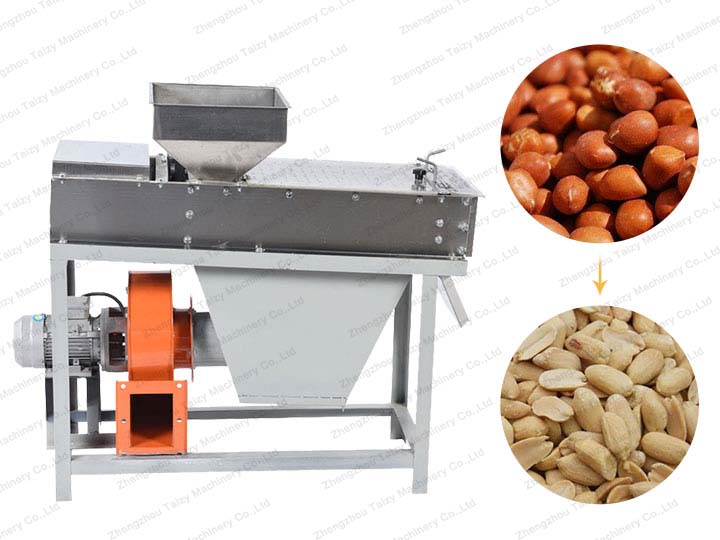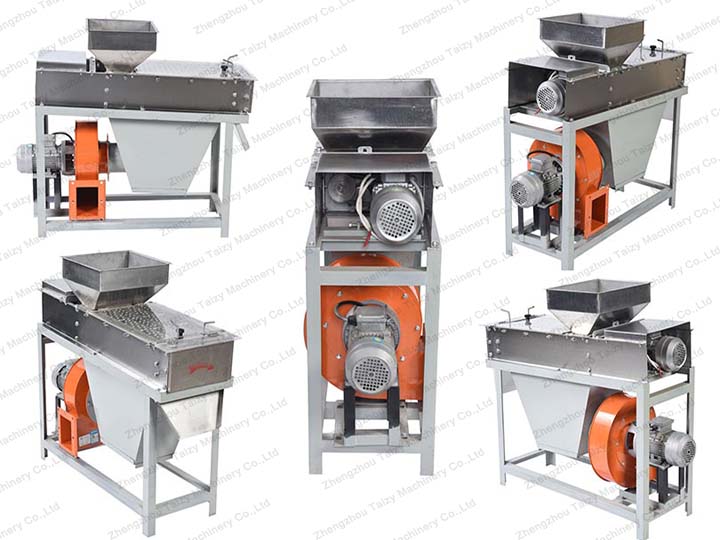Peanut Peeler Machine: an Ultimate Guide
Peanut peeler machine, also known as a peanut skin removing machine, is an industrial equipment used to remove the outer skin or shell of peanuts. This process is important for the production of peanut butter, roasted peanuts, and other peanut-based products.
Peanuts are widely used in the food industry due to their high nutritional value and versatility in different cuisines. The removal of the peanut outer skin is crucial to maintain the quality of the end-product. However, manual peeling can be time-consuming, labor-intensive, and prone to contamination. Peanut peeler machines solve these issues by providing a fast, efficient, and hygienic method of peanut skin removal.
The peanut peeler machine was first developed in the late 19th century as a way to mechanize the process of peanut skin removal. Over time, different designs and features were added to improve the efficiency, safety, and ease of use of the machine. Today, peanut peeler machines are widely used in the food, pharmaceutical, and agricultural industries, with various models and specifications to suit different production needs.
What is a peanut peeler machine?
A peanut peeler machine is an industrial equipment designed to remove the outer skin or coat of peanuts. The machine uses a rotating drum or roller to rub the peanut against a rough surface or abrasive material, which causes the skin to peel off. The peeled peanuts are then collected in a tray or container, while the skins are discharged through a separate outlet.

Machine parts of peanut peeler
A peanut peeler machine mainly consists of the following parts:
Hopper: a container where the raw peanuts are placed for processing.
Roller or Drum: a rotating cylindrical component with abrasive surfaces that rub the peanut against the inner wall of the machine.
Drive Motor: a motor that provides the power to rotate the roller and process the peanuts.
Discharge Outlet: a channel or pipe where the peanut skins are expelled from the machine.
Collection Tray: a container where the peeled peanuts are collected after processing.
Frame and Support: a structure that holds the machine together and provides stability during operation.
Types of peanut peeling machine
There are different types of peanut peeler machines based on their design, capacity, and intended use. Some common types include:
Small-scale or manual peanut peeler machine: suitable for home or small-scale processing of peanuts, usually hand-cranked or manually operated.
Automatic or semi-automatic peanut peeler machine: designed for industrial or commercial use, with a motorized drive system, and adjustable settings for variable peeling thickness and speed.
Wet peanut peeler machine: uses water or steam to soften the peanut skin before peeling, resulting in a smoother and faster peeling process.
Dry peanut peeler machine: uses air or mechanical force to remove the skin, suitable for dry and hard peanuts.

Working principle of peanut peeler machine
The peanut peeler machine works by rotating the drum or roller, which rubs the peanuts against the abrasive surface. The friction between the peanut and the rough surface causes the skin to peel off, leaving behind a smooth and naked peanut. The peeling thickness and speed can be adjusted by modifying the roller speed, the pressure between the peanuts and the surface of the roller, and the angle of inclination.
Conclusion
In conclusion, a peanut peeler machine is a revolutionary tool in the peanut processing industry. With its ability to peel large quantities of peanuts efficiently and accurately, it has become an essential equipment in many peanut processing factories. The purchase and use of this machine will undoubtedly enhance the productivity of companies engaged in peanut processing, leading to increased profitability and competitiveness in the market.
Taizy factory is a professional peanut processing machines manufacturer. Our products cover peanut harvesting machine, peanut picker machine, peanut shelling machine, peanut peeling machine, and peanut roasting machine, etc. All machines enjoy CE, and ISO international certificates. Get in touch with us for a best quotation.
